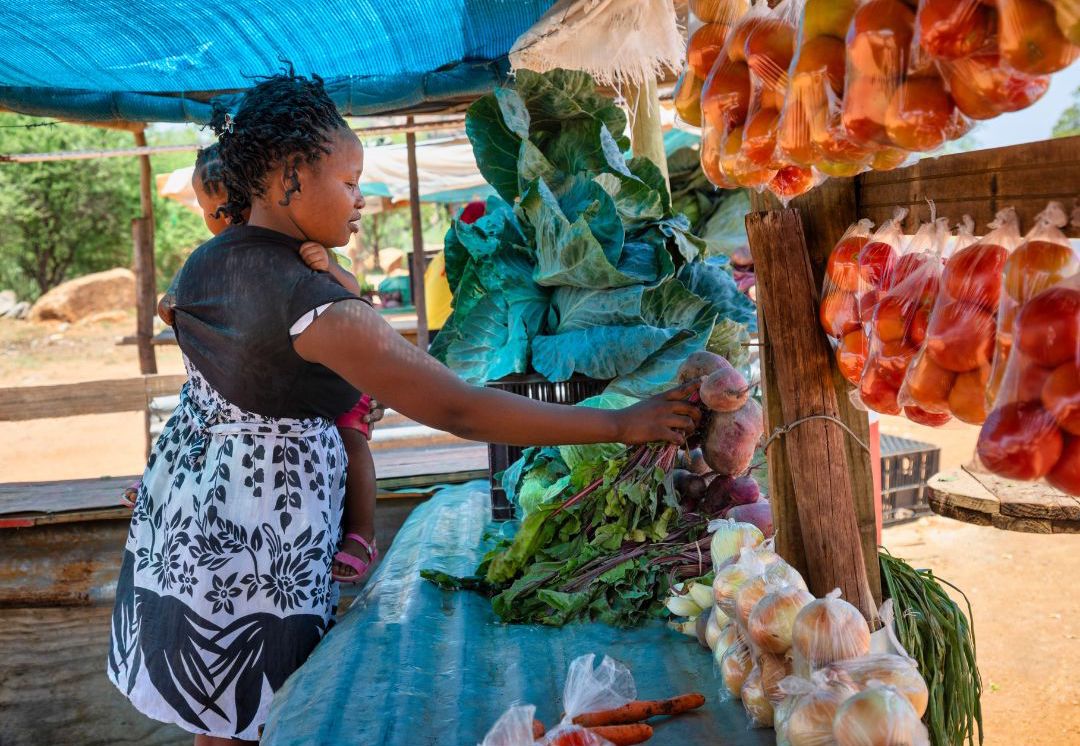Child vendors: Society’s ugly reflection in the mirror

You find them deep in the chortling “cows’ guts” of Harare; right in the middle of the busiest intersection, dodging maniacally driven pirate taxis known in street lingo as “mushika-shikas”, darting from car to car with arms laden with plastic trinkets, shoving the cheap merchandise into the windows of uninterested motorists.
Judging by the way they fluidly weave their way through choker-blocker traffic while negotiating for sales with natural thrust, you would, for a moment, not want to believe that these “sales warriors” are all but mere kids. Most of them being under ten years of age. They represent a booming trend which has become common sight in most urban spaces across the country, child vendors.
The children either operate alone or alongside their parents; targeting those urban spots with high volumes of human and vehicular traffic. In Harare, it is not uncommon to see a toddler crawling along a busy sidewalk while the mother is engrossed in the business of drawing the attention of pedestrians to pyramid heaps of red tomatoes on the other side of the pavement.
In some instances, parents or guardians with physical disabilities use the assistance of minor children to conduct begging in busy traffic.
Although it’s seemingly becoming rampant in Zimbabwean urban areas now, mainly because of the unfavourable economic climate the country has been exposed to since the turn of the millennium, child vending is a global problem which has been around for quite some time. Countries in the developing bracket are the most affected.
Veteran columnist A. A Gill, writing in Vanity Fair (November 2008), painted the extremity of child vending in India in a dramatic hue.
“If you ever wonder what the bottom rung of capitalism’s ladder looks like, it’s a nine-year-old boy selling a 40-watt lightbulb in four lanes of traffic in Bombay”, he wrote.
Child vending in its many facets and variations is, without doubt, a clear example of child labour. And the world does have a cache of laws in place that speak against this practice.
The UN Convention on the Rights of the Child obligates state parties to eliminate child labour in all its forms by 2025.
In Zimbabwe, the Children’s Act prohibits the employment of children in underground mining, night work, work involving hazardous substances or specified machinery, or work which interferes with a child’s education.
But sadly, with all these well enunciated legal provisions speaking against child exploitation, there’s very little effort that has been deliberately channelled towards addressing the issue of child vendors; an example of child labour which is much closer to home, happening in broad daylight, under society’s gaze.
To the city of Harare, which aspires to earn the prestigious “World Class City” status by year 2025, the problem of children scattered all over the central business district hawking or begging is an unsavoury reflection in the mirror, an ugly deformity it would wish could disappear by the wave of a magic wand.
In a written response to an inquiry made by My Afrika Magazine, the City of Harare cited the prevailing macro-economic challenges faced by the country as the biggest contributor to the ongoing shambolic scenes in central Harare. Plans to decongest the city centre through relocating some vendors to trading spots located in residential areas are said to be underway.
On children conducting vending with parents or on their own, acting City of Harare spokesperson, Innocent Ruwende, said council does not condone the practice as it is clearly outlawed by the constitution.
“International law is against child labour and we uphold that. We are against child labour, even our constitution (is against that)”, he said.
According to UNICEF, there are 158 million children working today, making it one in every six children. Sub-Saharan Africa has the largest proportion of child labourers (26% of children aged 5-17 years).
Hope in the horizon
While the Children’s Act has been in existence for a while, it hasn’t been effective in protecting the interests and rights of children as expected. But there’s hope; the government is working on another addendum to the existing law- the Child Justice Bill.
Recently, the Ministry of Public Service, Labour and Social Welfare’s Harare Provincial Social Welfare Officer, Susan Njani, told the Sunday Mail that the Child Justice Bill will empower authorities to prosecute parents who subject children to forms of child exploitation, like vending or begging for alms.
And, as a remedial response to the ongoing problem of children roaming the streets of Harare while accompanying their parents on vending activities, the Social Welfare ministry has proposed to establish a Day Care Centre in the heart of Harare CBD to cater for vendors and working parents. The children will be under the care of skilled social workers during working hours.
Day Care Centre’s, more popular in developed countries, are basically institutions that provide supervision and care to infants and young children during daytime, giving parents a space to hold onto their jobs and daily routines.
It is hoped these government Day Care Centers live to their goals and subsequently spread to other urban areas around the country, and that, together with the Child Justice Bill, it becomes the magic wand that vanishes that uncomfortable reflection in society’s mirror, forever.







